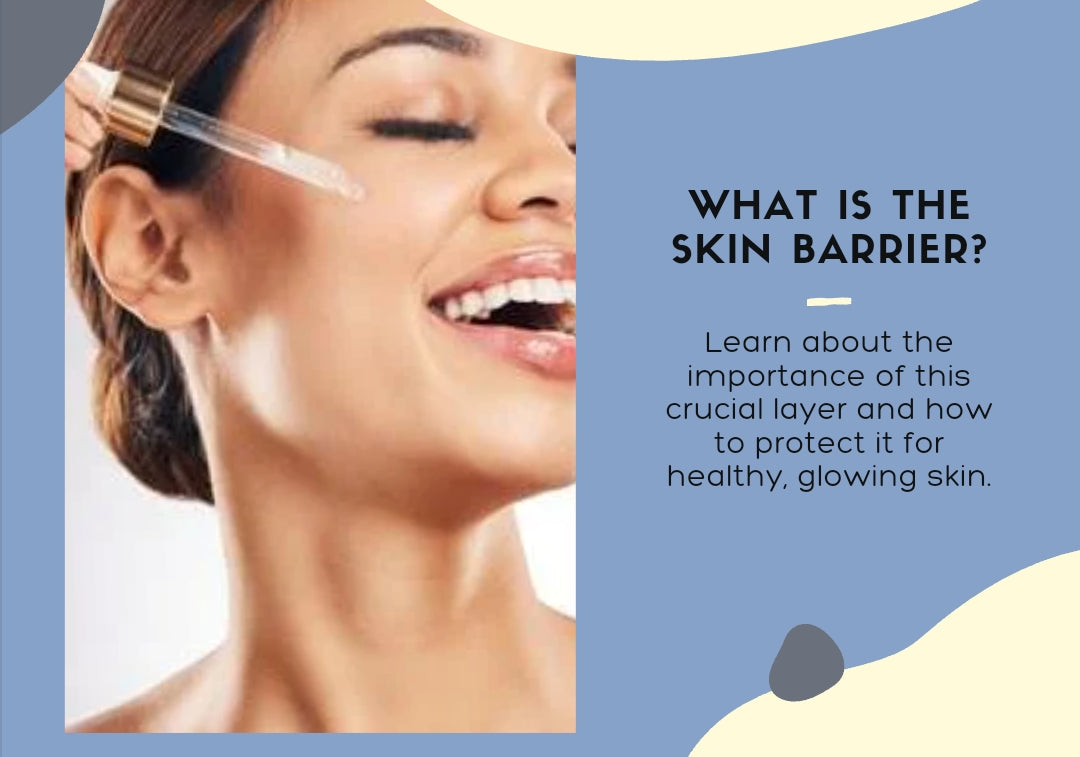
What Is the Skin Barrier and Its Significance in Skincare
Introduction to the Skin Barrier
The skin barrier, a term often echoed in the realms of dermatology and skincare, stands as the frontline defender of our body's largest organ - the skin. This intricate layer, more than just a superficial covering, is a dynamic interface between our internal biology and the external world. It's a bastion that guards against a plethora of environmental aggressors while maintaining the delicate balance of moisture and nutrients essential for skin vitality.
Anatomy of the Skin Barrier: Understanding Its Structure
Delving into the anatomy of the skin barrier, primarily the stratum corneum, unveils a fascinating biological architecture. Envision a meticulously crafted wall, where each 'brick' is a skin cell (corneocyte) bound together by a 'mortar' of lipids. These lipids, comprising ceramides, cholesterol, and essential fatty acids, create a robust yet flexible barrier. This structure is not just a physical blockade but a complex matrix that plays a pivotal role in skin health, regulating everything from hydration to defense against microbial invasion.
Key Functions of the Skin Barrier
The functions of the skin barrier are multifaceted and crucial. Firstly, it acts as a shield, safeguarding against ultraviolet radiation, pollutants, and harmful microorganisms. Secondly, this barrier is instrumental in maintaining hydration. It traps moisture, preventing transepidermal water loss, a key factor in keeping the skin plump and resilient. Lastly, it's a selective gateway, allowing the absorption of beneficial substances while repelling harmful compounds, thus maintaining the skin's integral homeostasis.
The Impact of Environmental Stressors on the Skin Barrier
The resilience of the skin barrier is continually challenged by environmental stressors. Prolonged exposure to UV rays, for instance, can break down collagen and elastin fibers, leading to premature aging and increased vulnerability to damage. Airborne pollutants and toxins can penetrate the barrier, causing oxidative stress and inflammation. Additionally, lifestyle factors like poor nutrition, inadequate hydration, and stress can weaken this vital barrier, leaving the skin susceptible to irritation and various dermatological conditions.
Recognizing Signs of a Damaged Skin Barrier
Identifying a compromised skin barrier is crucial for timely intervention. Telltale signs include persistent dryness, a feeling of tightness, and a noticeable lack of suppleness in the skin. In more severe cases, it manifests as flakiness, redness, and an increased propensity for acne and other skin irritations. These symptoms are indicative of the barrier's diminished ability to retain moisture and defend against external irritants, signaling a need for restorative care.
The Role of Ceramides and Other Essential Lipids in Skin Health
Ceramides, the unsung heroes within the skin’s lipid matrix, play an indispensable role in barrier function and skin health. These lipid molecules, alongside their counterparts - cholesterol and fatty acids - form a protective layer that locks in moisture and shields the skin from environmental damage. The loss or imbalance of ceramides, often due to aging or harsh skincare practices, can lead to a compromised barrier, making the skin prone to dryness and irritation. Replenishing these vital lipids is key to restoring barrier function and ensuring skin resilience.
Preventive Measures and Daily Routines for a Healthy Skin Barrier
Fortifying the skin barrier requires a proactive and consistent approach. Daily sun protection with a broad-spectrum sunscreen is non-negotiable, as UV rays are a primary cause of barrier damage. Gentle cleansing, avoiding harsh detergents and over-washing, helps maintain the barrier's integrity. Regular hydration, both internally through adequate water intake and externally through quality moisturizers, keeps the barrier robust. Furthermore, incorporating antioxidant-rich foods and minimizing stress can significantly bolster the skin’s natural defenses.
Repair Strategies: From Natural Remedies to Skincare Products
When it comes to repairing a damaged skin barrier, a multi-pronged strategy works best. Gentle, restorative skincare products enriched with ceramides, hyaluronic acid, and niacinamide can help rebuild the barrier. Natural remedies like aloe vera and honey offer soothing and healing benefits. Reducing the frequency of exfoliation and avoiding skincare products with harsh chemicals or fragrances can also accelerate the healing process. It's essential to listen to your skin and adapt your routine to its changing needs.
The Relationship Between Skin Barrier Health and Overall Skincare
The health of the skin barrier is inextricably linked to the overall condition of the skin. A robust barrier not only protects against external aggressors but also ensures optimal functioning of the skin. It's a foundation upon which the effectiveness of skincare products and routines is built. For instance, a healthy barrier enhances the skin's ability to absorb and benefit from active ingredients in serums and creams, thereby maximizing their efficacy.
Conclusion: Embracing a Holistic Approach to Skin Barrier Care
In conclusion, the skin barrier is more than just a protective layer; it's a cornerstone of skin health and beauty. Its care transcends cosmetic considerations, encompassing a holistic approach that includes lifestyle choices, nutritional habits, and mindful skincare practices. By nurturing and respecting our skin barrier, we not only safeguard our skin but also contribute to our overall well-being. Remember, healthy skin begins with a healthy barrier – a truth that stands at the heart of effective skincare.

